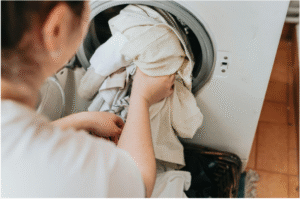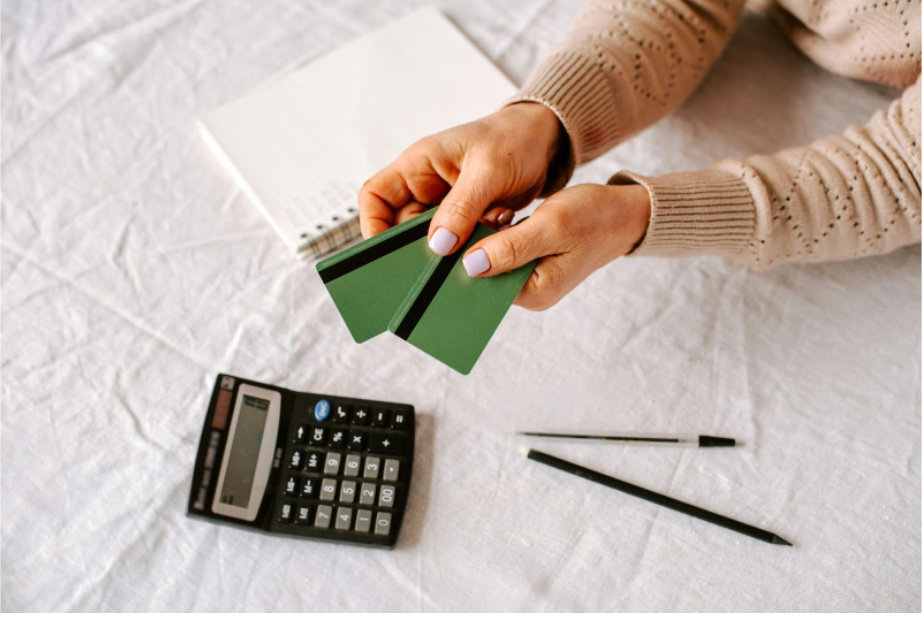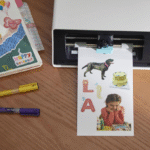Image from Unsplash
- Rethink the “Small Stuff”
- Use Less, Get More: Minimalism Meets Budgeting
- Energy-Efficient Habits That Don’t Feel Like Work
- The Grocery Game Plan
- Invest in Reusables
- Audit Your Subscriptions
- Make Bulk Work for You
- Embrace “Low-Maintenance Living”
- Refresh Instead of Replace
- Create a Budget-Friendly Home Mindset
Making your home more budget-friendly doesn’t have to mean skipping takeout forever or sweating over spreadsheets. In fact, some of the smartest changes you can make are the simplest ones. When I switched to Clean People’s bulk laundry detergent, I was just looking for a way to declutter my laundry space, but I ended up slashing my detergent costs and ditching plastic jugs for good. That small change snowballed into a handful of other easy shifts that now save me real money every month.
The trick isn’t overhauling everything at once. It’s about finding sustainable swaps, simplifying daily habits, and rethinking convenience without sacrificing comfort. Here’s how to make your home more budget-friendly, without breaking a sweat or your bank account.
Rethink the “Small Stuff”
We often assume that only big budget decisions (like switching energy providers or refinancing a mortgage) make a difference. But everyday choices, especially the ones you repeat weekly or monthly, add up faster than you think.
Take household products, for instance. Choosing compact, long-lasting options like laundry sheets, refillable cleaners, and reusable cloths not only cuts down on waste but can significantly reduce your monthly spending. You don’t have to hunt for coupons every Sunday, just choose smarter from the start.
Use Less, Get More: Minimalism Meets Budgeting
Minimalism isn’t just a design trend, it’s a budget strategy in disguise. Owning fewer things means less to clean, maintain, and eventually replace. Instead of multiple single-use gadgets or cluttered cabinets full of half-used products, go for streamlined, multi-use items.
You might not think minimalism has much to do with saving, but the overlap is real. In fact, the U.S. Bureau of Economic Analysis has shown that personal consumption is a driving factor in household debt, cutting back on non-essentials genuinely pays off.
Energy-Efficient Habits That Don’t Feel Like Work
Energy efficiency isn’t all solar panels and cold showers. Sometimes, it’s as simple as:
- Switching to LED bulbs
- Washing clothes in cold water
- Unplugging unused devices
- Using natural light whenever possible
These small shifts require almost zero effort once you’ve made the change, yet they reduce your utility bills consistently over time.
Also, consider timing your appliance use. Running your washing machine or dishwasher during off-peak hours (often early morning or late at night) can be cheaper, depending on your energy provider.
The Grocery Game Plan
If you feel like your weekly shop keeps creeping up, you’re not alone. Food costs have climbed in recent years, but you can fight back with a little strategic planning:
- Shop your pantry first: Use what you already have before buying more
- Meal plan around what’s on sale
- Buy in bulk (for shelf-stable items)
- Limit trips, more visits usually = more impulse buys
Apps like Flipp or your grocery store’s own digital circular can help you plan your haul without clipping a single paper coupon.
Invest in Reusables
Switching from disposable to reusable items is a one-time effort that can create long-term savings:
- Cloth napkins instead of paper
- Reusable food storage bags
- Refillable cleaning spray bottles
- Dryer balls instead of sheets
Yes, some have a small upfront cost, but you’ll recoup it quickly, and reduce waste in the process.
Audit Your Subscriptions
Between streaming services, fitness apps, and monthly product boxes, many of us are spending on things we don’t even use. Take 30 minutes to do a subscription audit:
- Cancel duplicates (do you really need three video platforms?)
- Pause what you’re not actively using
- Look for annual plans (which often cost less per month)
If you want to go next-level, use a subscription tracking app that alerts you before your next billing cycle.
Make Bulk Work for You

Image from Unsplash
Buying in bulk isn’t just for people with garages full of shelving. Even if you’re in a flat or small home, you can bulk-buy key items with friends, family, or neighbors and split the cost.
Laundry detergent is a great example. Traditional jugs are heavy, messy, and take up space, but Clean People’s bulk detergent sheets are slim, tidy, and store easily in a drawer or tote. You save money, reduce waste, and don’t have to run out mid-week.
The same applies to bulk-purchased pantry goods, toilet paper, or toiletries, just choose space-efficient packaging or split orders across your household.
Embrace “Low-Maintenance Living”
Low-maintenance doesn’t mean lazy, it means designing your routine so it works with your life, not against it. A few ideas:
- Keep cleaning tools in multiple rooms (so you’re more likely to use them)
- Use a simple meal rotation to avoid nightly dinner planning
- Put bills on autopay to avoid late fees
- Use laundry sheets you can toss in with no measuring (again, hello Clean People)
When your home runs smoother, you’re less likely to spend on convenience just to cope.
Refresh Instead of Replace
Before you toss something and head to the store, ask: can this be refreshed instead?
- Clean white trainers with baking soda and vinegar
- Use cushion covers instead of buying new pillows
- Repaint furniture instead of replacing it
- Rearrange decor to make your space feel new
Not only is this kinder to your budget, it’s often more satisfying than constantly buying new things.
Create a Budget-Friendly Home Mindset
Budget-friendly living isn’t about restriction. It’s about asking: What actually adds value? Maybe it’s fewer but better tools in your kitchen. Maybe it’s saving on laundry but spending on a comfy mattress.
You don’t need to live in a hyper-frugal bubble. Just start noticing which small shifts feel effortless and rewarding, and build on those.
Making your home more budget-friendly doesn’t require a personality transplant or a massive lifestyle overhaul. It just takes a few smart adjustments, from switching to reusable products and energy-saving habits to choosing space-saving, budget-conscious products like Clean People’s bulk detergent.
Your wallet, and your home, will feel better for it.

















